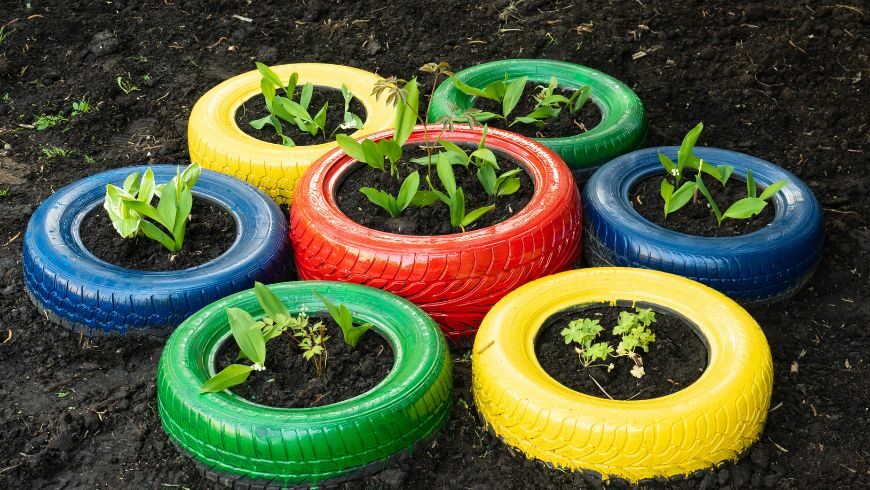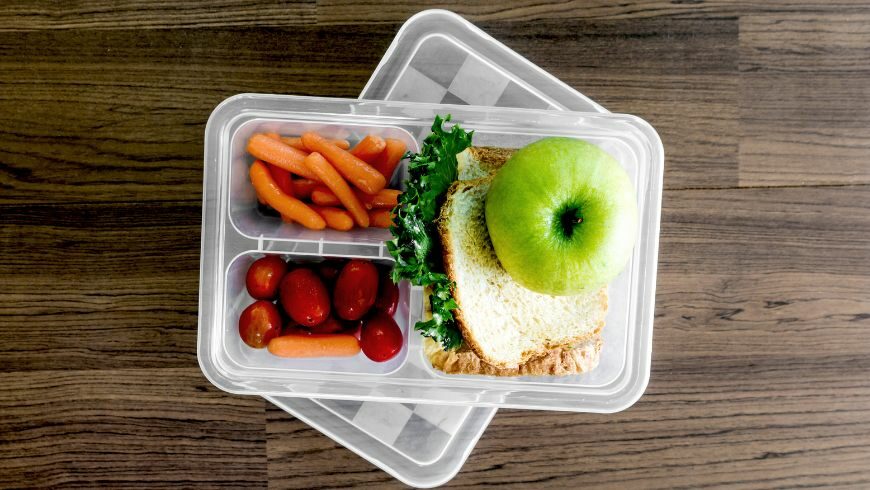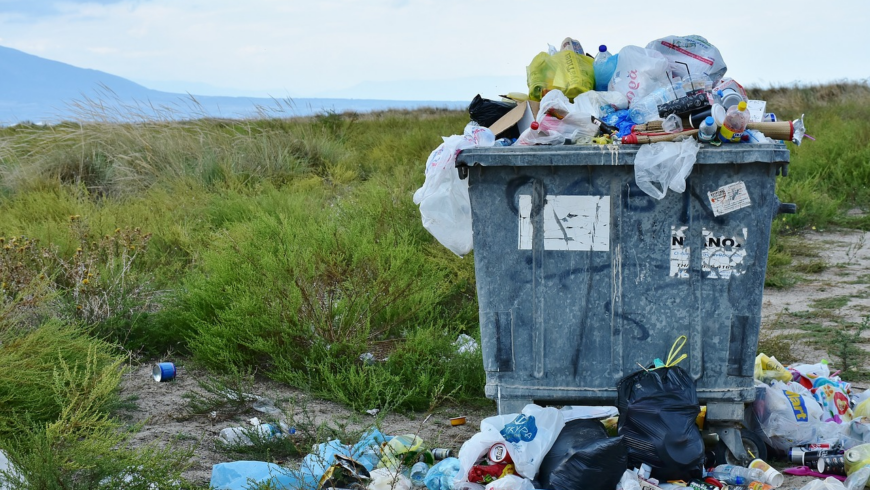In a world where environmental concerns are becoming increasingly urgent, adopting eco-friendly practices in our daily lives has never been more crucial. While the enormity of global environmental issues can seem overwhelming, the good news is that positive change can begin with small, everyday actions. In this article, we will explore 19 simple and practical ways to go green in your daily routine.
These eco-conscious choices not only reduce your environmental footprint but can also save you money and promote a healthier, more sustainable lifestyle. From your morning routine to your evening habits, there are countless opportunities to make a positive impact on the planet. So, let’s dive in and discover how you can easily incorporate eco-friendly practices into your everyday life, one step at a time.
1. Use plastic garden containers again (and upcycle old containers into planters!) Remember a useful Eco English verb to reuse instead of to use again and to upcycle which means to use them for another better purpose)

2. Use plastic solo kitchen cups and cutlery ( knives, spoons, and forks) again— my old neighbors have a number of solo cups they’ve used for more than 30 years.
3. If you desperately need a drink, especially during summer, don’t just grab a new plastic glass from the cupboard—try to always keep your own glass in a familiar place so you can use it all day long. I personally tend to prefer glasses made of glass, to be honest.
4. Generally speaking, try to avoid grocery bags made of plastic and choose reusable ones or alternatively opt for jute bags. If you do happen to have them after all, instead of purchasing new plastic bags for your garbage, use grocery bags you already have from your daily shopping.
5. After you use the tin foil in your kitchen, wash it carefully to avoid tearing, and stack it in your drawer to reuse as often as possible.

6.Reduce unnecessary spending by thinking of your favorite color palette for wardrobe staples and try to stick to it. It is very useful to have a clear idea of what clothes you feel best in.
8. Some elderly people, in the times when money was scarce, used to run water through the coffee grounds a second time for a new batch of coffee though it would be of weaker, inferior quality.
9. Consider using marmalade jars as drinking cups! They can come in handy!
10. And also you might like to keep glass jars and lids at hand for your guests to take the food and drinks leftovers home after a dinner party at your place.

11. Always have a packed lunch with you when you go out of the house for a few hours or more—it’s so simple and easy, but this habit can save money and reduce the amount of plastic packaging. It can keep you healthier as well.
12. Whenever you want to boil or cook some rice, rinse it and try to capture the water in a kitchen bowl. You can use it for healthier hair and skin and also for plants, and more.
13. If you’ve had a clothing item mended as much as possible (or if it’s stained beyond repair), you might like to cut it up to be used as rags instead of paper towels.
14. If you can’t get rid of a stain on your clothes, you can dye it with fabric colours and dyes instead.
15. If you love somebody, possibly find a new way to say that you love them rather than sending cards or cheap presents. You can try spending time together, making phone calls to each other, or making meals together. All these are rational but meaningful ways to show you care for your significant others.

16. “My grandparents wouldn’t let us the children peel fruits and vegetables with a kitchen peeler because it would peel off too much of the vegetable, and she’d make you peel with the blade of a knife at a 90 degree angle to preserve as much as possible.
17. When the water from a kettle or a coffeepot boils and then cools, try to use it to water your plants or rinse your dishes in the kitchen sink.
18. You can wrap up the shopping or gifts in newspaper or magazine paper, paper tissue, or fabric. Alternatively, it might be fun to wrap them in the cartoon section of a magazine.
19. If you like to drink coffee and tea, keep a large flask of boiled water handy. This keeps it hot so you only have to boil the water once in the morning and in doing so you will save electricity and time.
As we conclude our exploration of 19 simple yet powerful ways to go green in your everyday life, it becomes clear that adopting eco-friendly practices isn’t just a choice; it’s a responsibility we owe to our planet and future generations. These small, manageable changes may seem insignificant individually, but when collectively embraced by individuals around the world, they can make a significant impact on our environment.
By making a conscious effort to reduce waste, conserve energy, and choose sustainable alternatives, we not only reduce our carbon footprint but also inspire others to follow suit. The ripple effect of these choices can lead to substantial positive change, fostering a more sustainable and harmonious coexistence between humanity and the Earth.
Remember, no action is too small when it comes to caring for our planet. Whether it’s using reusable bags, reducing water consumption, or supporting local and sustainable products, every eco-conscious decision you make contributes to a brighter and greener future.
So, let’s continue to implement these green practices into our daily routines, not as a burden, but as a commitment to creating a world where nature thrives, pollution diminishes, and our lives are in harmony with the environment. Together, we can shape a greener, more sustainable tomorrow, one small step at a time.

Author: Eco-English with Natasha




